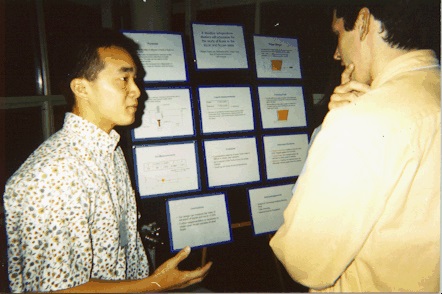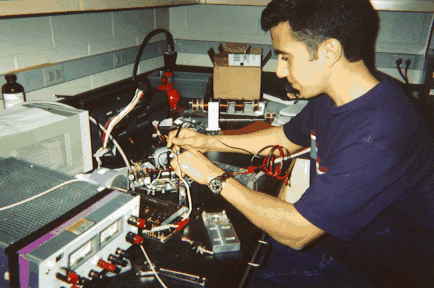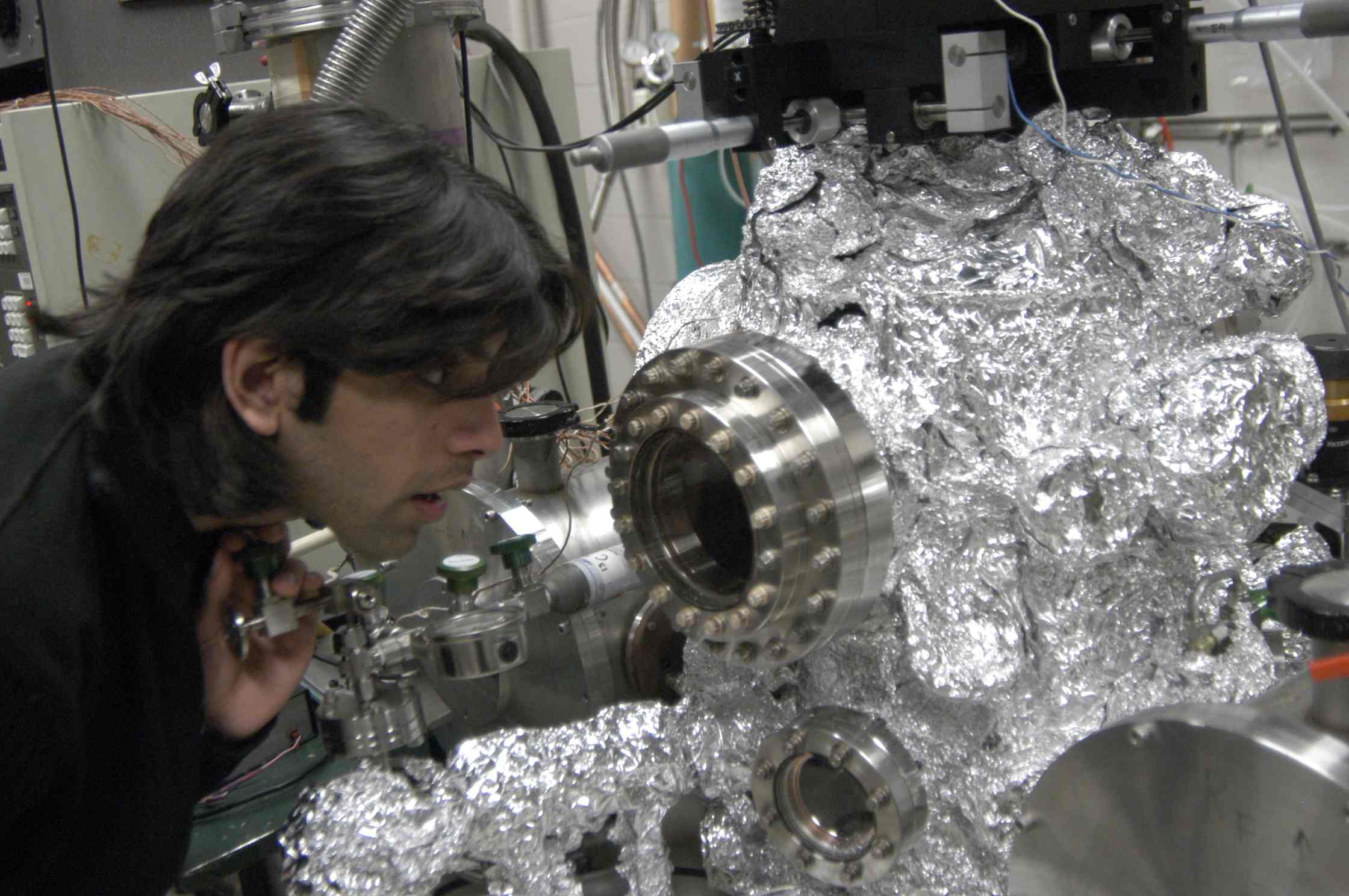









 |
 |
 |
 |
 |
 |
 |
| Links |
 |
 |
 |
Travis Lau
BS
2002 (Biology)
Staff Physician, Pacific Anesthesia, Inc.
 During my
research experience with Professor Tobin, I was
given an incredible opportunity to engage in hands-on learning and the
responsibility
to complete tasks on my own. These tasks
included:
During my
research experience with Professor Tobin, I was
given an incredible opportunity to engage in hands-on learning and the
responsibility
to complete tasks on my own. These tasks
included:
Daron
Kurkjian
B.S. 2004 (Engineering)
Gordon Institute,
Engineer, AMEC Environment and Infrastructure, UK
 The
theme of my undergraduate research experience was the gaining of real
experience. The experience I gained was predominantly in how to problem
solve,
research, collaborate, and balance work demands with other time
demands.
The
theme of my undergraduate research experience was the gaining of real
experience. The experience I gained was predominantly in how to problem
solve,
research, collaborate, and balance work demands with other time
demands.
In the design of parts I learned a
greater lesson in professionalism. Professor Tobin made sure he
reviewed the
diagrams before I brought them to the machine shop. The fact that a PhD
holding
professor would spend the time reviewing an undergraduate's diagrams to
save
retooling time for the shop machinists was evidence of mutual respect
that as a
freshman was more than I imagined a faculty member to hold. Professor
Tobin
explained the busy schedules of the machinists and critical work they
did and I
learned to be more thoughtful in my work as a result.
Overall,
undergraduate research is a
great way to see the other side to Tufts professors. Without my lab
experience
I would be oblivious to a huge part of the highly specialized research
going on
at Tufts. Without my lab-work starting my freshman year, I only now in
my
senior year would have begun researching closely with professors and
would not
have utilized the benefits of the research university Tufts is.
Krish
Kotru
B.A. 2008 summa cum
laude, high thesis honors (Physics)
 My
experience in Prof. Tobin’s lab spanned most of my
undergraduate career at Tufts. I
began
as a freshman by designing an alignment system using a laser. The project sounded simple
enough, and I
imagined I’d finish it within a few weeks
— a
prediction that would have been
correct had everything gone exactly according to plan.
Of course, plans had to be re-planned from
time and time, and two months later I felt a great deal wiser, not only
about
physics, but also about being an experimentalist.
My
experience in Prof. Tobin’s lab spanned most of my
undergraduate career at Tufts. I
began
as a freshman by designing an alignment system using a laser. The project sounded simple
enough, and I
imagined I’d finish it within a few weeks
— a
prediction that would have been
correct had everything gone exactly according to plan.
Of course, plans had to be re-planned from
time and time, and two months later I felt a great deal wiser, not only
about
physics, but also about being an experimentalist.
This design project was multi-faceted and tremendous for a freshman: it involved mechanical design (in collaboration with Tufts’ machine shop), electronics, optics, budgeting, and lots of one-on-one discussion with the Professor. I was fortunate because my future work in the lab allowed me to build on this first project. As a sophomore, I wrote a computer program in LabVIEW that interfaced the laser with a PC to facilitate data collection. After studying abroad for a year, I began a senior thesis in which the same laser system was used to monitor the deposition of extremely thin metal layers on a substrate (we’re talking about angstrom-level thicknesses). The thesis research required one of Prof. Tobin’s ultrahigh vacuum chambers, among other things, and allowed me to develop an even larger skill-set, as well as a deeper knowledge of experimentation. Most importantly, I had the opportunity to extend my initial work for three years and thereby make a meaningful contribution to Prof. Tobin’s research.
Rest assured that your assignment will be well thought-out and within the grasp of an undergraduate who has had some exposure to college-level physics. You will be given a fair amount of independence and will have to think creatively to find solutions to everyday experimental challenges. And yet, help is almost always around the corner—in the form of either Prof. Tobin himself or one of his students—in case you get really stuck.
This resource is wonderful to have around the lab, particularly when you are struggling with a confusing idea.
He is an avid Red Sox fan, a jazz enthusiast, and a runner. He also speaks multiple languages, and follows politics enough to occasionally send letters to the editors of The New York Times. I realized I would enjoy working with the Professor, before I learned about all his extracurriculars, when he referred to physics during the 1970s as the “sexy science”—that’s ten points for sense of humor, in my opinion.
Take, for example, the Cavendish Experiment in 1798, which provided evidence for the accuracy of Newton’s Law of Gravitation. Cavendish’s experimental results were extraordinarily sensitive, given the technological challenges he faced in measuring vanishingly small gravitational forces. Textbooks bypass the meticulous and painstaking efforts that go into such work, perhaps for the sake of brevity, and instead present only final results. The reader, consequently, does not see the creativity and follow-through of the experimentalist: Cavendish had to build his apparatus and then repeat a fairly tedious experiment 29 times before obtaining publishable results. In Prof. Tobin’s lab you will become a better experimentalist, and you will learn that experimentation is not second to theory, but rather, that it is a means to learning in and of itself.